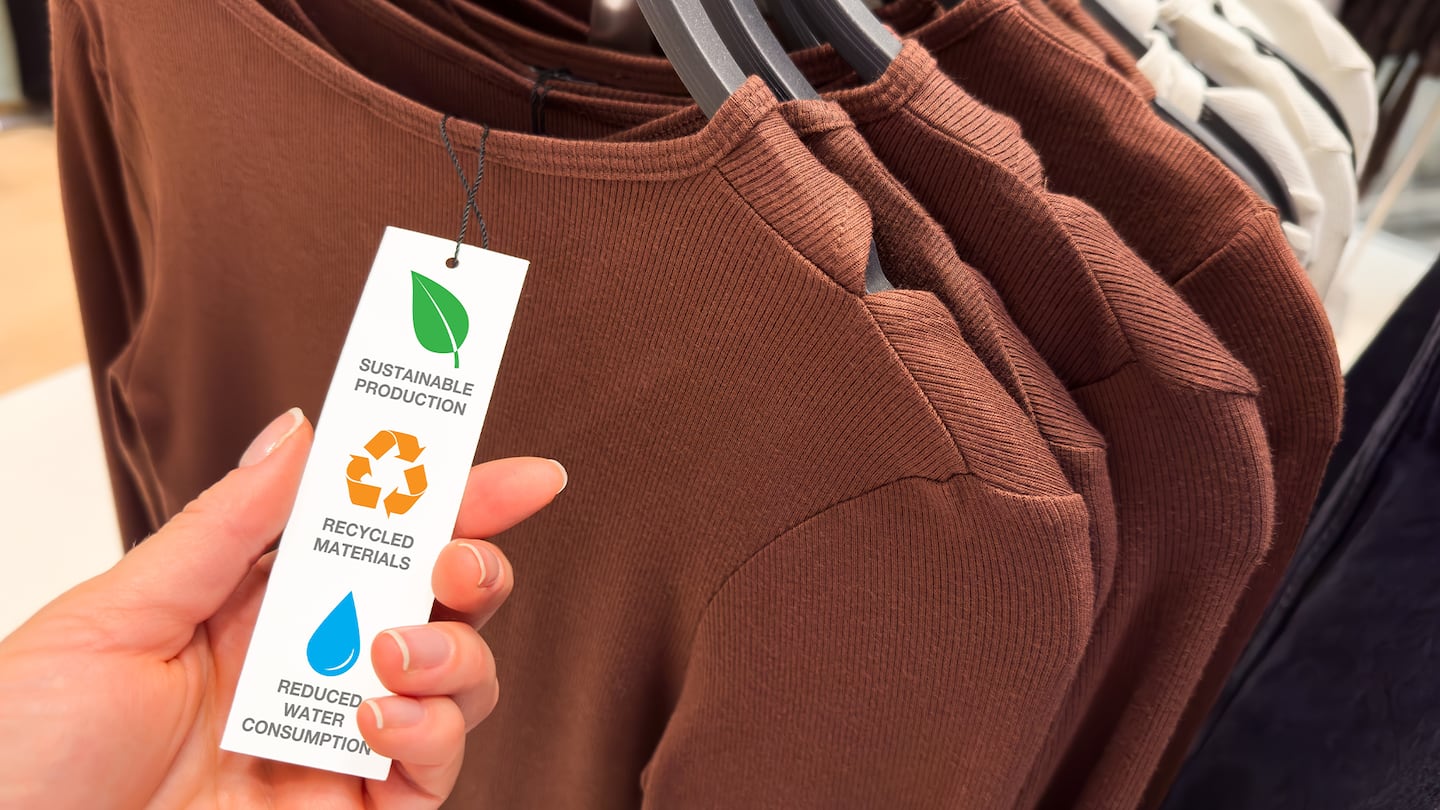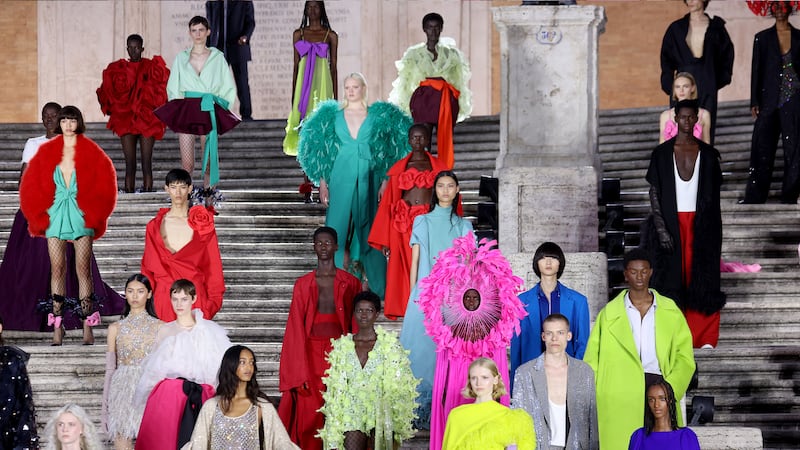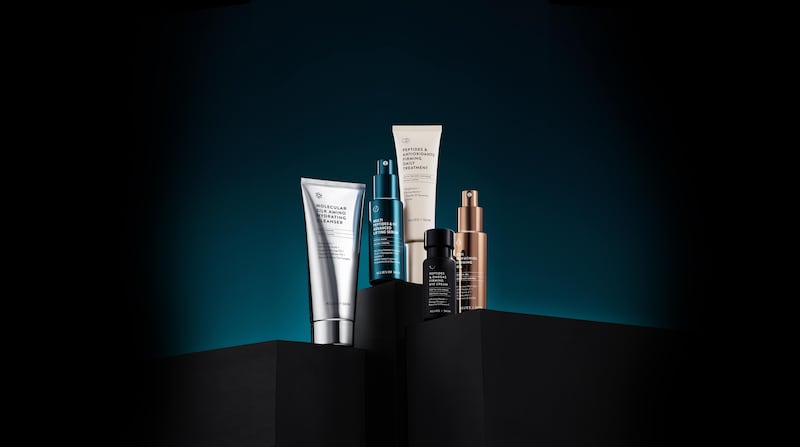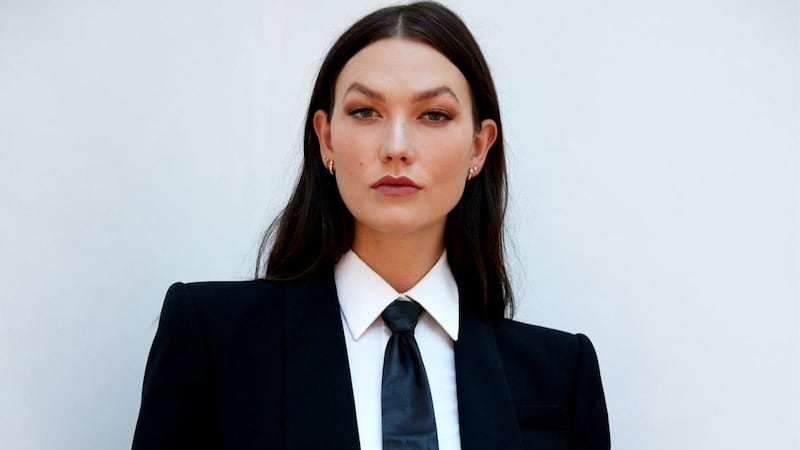The Business of Fashion
Agenda-setting intelligence, analysis and advice for the global fashion community.
Agenda-setting intelligence, analysis and advice for the global fashion community.

Over the last few years, a host of companies that once boldly touted their products’ sustainability credentials have quietly backed away from such claims, a response to a regulatory and reputational crackdown on greenwashing known as “greenhushing.”
Sephora appears to be taking the opposite approach.
Earlier this week, the LVMH-owned beauty retailer announced plans to double down on “clean” and “green” labels for brands whose products are free from certain ingredients or that meet specific environmental criteria. Though similar badges are already in use in some markets, the company is now planning to roll out a single set of programmes with tougher requirements worldwide.
It may have been emboldened by a ruling in New York earlier this month throwing out a class action suit that challenged the credibility of its “Clean by Sephora” seal. The fuzzy definition of “clean” has made the beauty buzzword a lightning rod for controversy, but a judge concluded that Sephora’s designation of products made without specific ingredients was sufficiently clear.
ADVERTISEMENT
Now with plans to expand its climate-conscious and clean labelling schemes, the company said its aim is to bring more clarity, consistency and transparency to consumers looking to shop their values. The goal is to make more sustainable choices more accessible to consumers and brand partners, CEO and president Guillaume Motte said in a press release.
But it’s also a risk at a time when regulators appear to be taking an increasingly dim view of such sustainability marketing.
Less than 48 hours after Sephora unveiled its plans at a climate summit in Paris, fast fashion companies Asos and Boohoo committed to tighten up consumer-facing sustainability claims following a greenwashing investigation by the UK’s competition watchdog. One area of focus: labelling schemes.
Last month, German e-tailer Zalando agreed to remove “misleading” sustainability icons from products following a two-year-long probe by EU officials. Regulators have warned the industry should be on notice to ensure any claims are properly backed up.
Sephora did not provide comment.
The issue with labelling schemes, regulators say, is that they often lack transparency and precision, leaving consumers with a false sense of a product’s better climate credentials. To avoid the risk of misleading shoppers, it’s necessary to be specific about exactly how an item is more ethical or environmentally responsible.
“The key thing about very broad labels such as ‘eco’ or ‘sustainable’ or ‘better for the planet’ is that it creates an expectation that the product will not have a negative impact on the planet,” said Cecilia Parker Aranha, director of consumer protection at the UK’s Competition and Markets Authority. That’s not a claim that’s easy to back up, especially when considering a product’s full life cycle. “That’s why we think for most businesses at the moment precision is likely to be a better way to go,” she said.
Sephora’s revamped sustainability labels were two years in the making, put together with a team of environmental and scientific experts, the company said in its press release. They’ll apply to brands, rather than products, and to qualify companies will need to meet a minimum of 32 criteria across ingredient sourcing and formulation, packaging, corporate climate commitments and consumer transparency. Instead of “Planet Positive” (the old framing for its US brand badges), qualifying companies will be dubbed “Planet Aware.”
ADVERTISEMENT
Programmes with high integrity can be a useful tool, not only to communicate with consumers, but to push the whole industry forward, said Elizabeth Sturcken, managing director for corporate partnerships at climate advocacy group Environmental Defense Fund, which has worked with Sephora on its clean ingredients strategy.
“Greenhushing is real for companies,” said Sturcken. “We really need to get everyone on this journey, and it has to be seen as something that is compelling from a business perspective, a brand perspective and a brand engagement perspective.”
With newer and tougher regulations around sustainability marketing continuing to grow, nailing that triple win can seen mind-bogglingly complex. Companies are likely to be closely watching how moves like Sephora’s are received and where watchdogs turn their attention next. In the UK, the CMA is also investigating Unilever for greenwashing and has put brands on notice that policy moves that could result in much stiffer penalties are in the works.
“It is becoming increasingly risky for companies to make bold claims about safety or sustainability without backing them up,” said Lindsay Dahl, chief impact officer at supplement brand Ritual, former head of mission at Beautycounter and a long-time advocate for clearer definitions for “clean” and “sustainable” beauty. “Ultimately that’s a good thing; rather than companies silencing themselves, the antidote is just to talk to consumers more about it,” she said.
THE NEWS IN BRIEF
FASHION, BUSINESS AND THE ECONOMY

Valentino cancels menswear and haute couture shows. The Rome-based label had previously planned to stage a men’s runway in Milan and has been a longtime fixture of Paris haute couture week. The news follows last week’s announcement that creative director Pierpaolo Piccioli is exiting the brand.
Canada Goose cuts 17 percent of roles as consumer pullback persists. Job cuts follow two quarters of single-digit sales growth after increases of more than 20 percent the previous two periods. The company’s shares have tumbled 75 percent in the last 12 months and fell as much as 3.7 percent on Tuesday.
ADVERTISEMENT
Asos sales fall again amid turnaround of fashion retailer. Asos Plc suffered an 18 percent decline in sales in the first half due to heavy discounting. Shares of Asos rose 6 percent in early trading in London.
H&M’s new CEO takes cue from Zara with faster fashion strategy. The chain is focused on driving profit and sales by getting the newest fashions into stores as quickly. It reported first-quarter margins hit 3.9 percent, more than doubling from the year before with the retailer recording an operating profit of 2.08 billion Swedish krona ($196 million).
Saks Fifth Avenue flagship appraised at $3.6 billion as it renews Neiman push. Saks and its lenders had the property appraised so it could serve as collateral to raise debt for the financing efforts. The appraisal moves two of America’s biggest high-end department stores closer to a deal after years of on-and-off courtship.
Emma and Jens Grede and the Von Furstenbergs invest in The Elder Statesman. The deal will provide an infusion of cash and operational knowhow to a business that has built an international clientele for its cashmere and home goods. The Gredes’ stake was acquired through Popular Culture, their family office, and was accompanied by an investment from the Von Furstenberg family.
JD Sports CEO blames Nike for slumping sales. The British retailer is banking on a summer of sports to revive its fortunes, after like-for-like sales in the UK fell 3.1 percent in the final quarter of 2023. Shares rose 6 percent.
Profitability hurdles haven’t slowed the growth of resale. The online market for secondhand apparel hit $20 billion in the US in 2023 and is expected to more than double over the next five years, according to a new report. Gross merchandise value is expected to more than double to $44 billion by 2028.
L Catterton starts India unit with ex-Unilever veteran Sanjiv Mehta. The firm is launching a new vehicle to invest in Indian consumer-sector companies as it increases the focus on the fastest-growing major economy in the world. Mehta will be the executive chairman of India for the vehicle and will also be involved with the firm’s other global funds.
A Swiss watchmaker with deep ties to India is back from the dead — again. Favre Leuba plans to unveil more than two dozen timepieces later this year, priced as much as 24,000 Swiss francs ($26,489). The launch is part of a brand relaunch that seeks to expand the Swiss pioneer’s appeal beyond its majority Indian consumer base.
Copenhagen becomes the highest-profile fashion week to ban exotic skins. Copenhagen Fashion Week will work closely with brands to help them meet the new requirements, providing webinars and other support. The new standards will come into effect from the start of next year.
THE BUSINESS OF BEAUTY

Allies Of Skin secures $20 million investment. The funds earmarked for a wide US expansion of the premium skincare label. It’s the brand’s first institutional raise, having previously taken investment from private investors.
Lana Del Rey’s makeup artist Etienne Ortega unveils beauty brand. Ranging from $16 to $22, prices are meant to be on the lower end of prestige makeup to cover the cost of ingredients. Miami-based investor Eric Kaufman will serve as the line’s chief executive. Ortega will be focused on product development as the brand’s creative director.
PEOPLE

Alessandro Michele named Valentino creative director. The former Gucci designer’s first show for Valentino will take place during Paris Fashion Week in September. Michele succeeds Pierpaolo Piccioli who held the role of creative director for 8 years.
MEDIA AND TECHNOLOGY

Karlie Kloss and Joshua Kushner announce plans to revive Life magazine. Kloss and Kushner’s Bedford Media is bringing the iconic magazine back to print and digital as part of an agreement with Dotdash Meredith. Bedford Media will manage the magazine’s operations, including editorial strategy, revenue and media endeavours.
Compiled by Yola Mzizi
The industry needs to ditch its reliance on fossil-fuel-based materials like polyester in order to meet climate targets, according to a new report from Textile Exchange.
Cotton linked to environmental and human rights abuses in Brazil is leaking into the supply chains of major fashion brands, a new investigation has found, prompting Zara-owner Inditex to send a scathing rebuke to the industry’s biggest sustainable cotton certifier.
Over the last few years, the run-up to Earth Day has become a marketing frenzy. But a crackdown on greenwashing may be changing the way brands approach their communications strategies.
France is pressing ahead with a ‘game-changing’ bill that would impose a ‘sin tax’-style penalty on fast-fashion products as high as €10 per item by 2030.